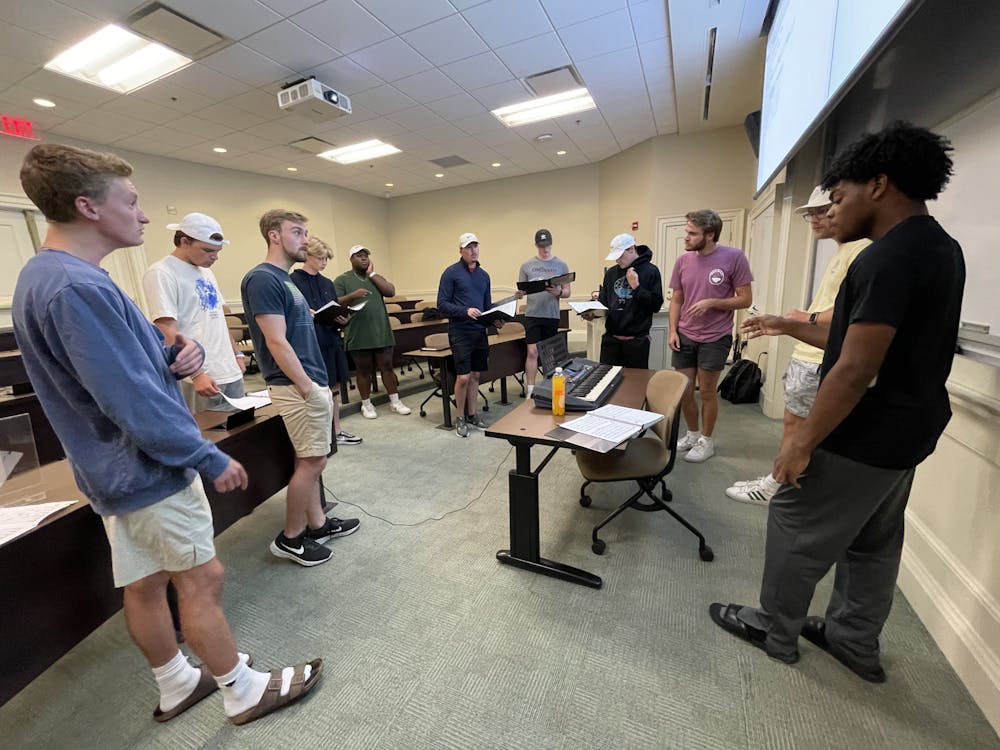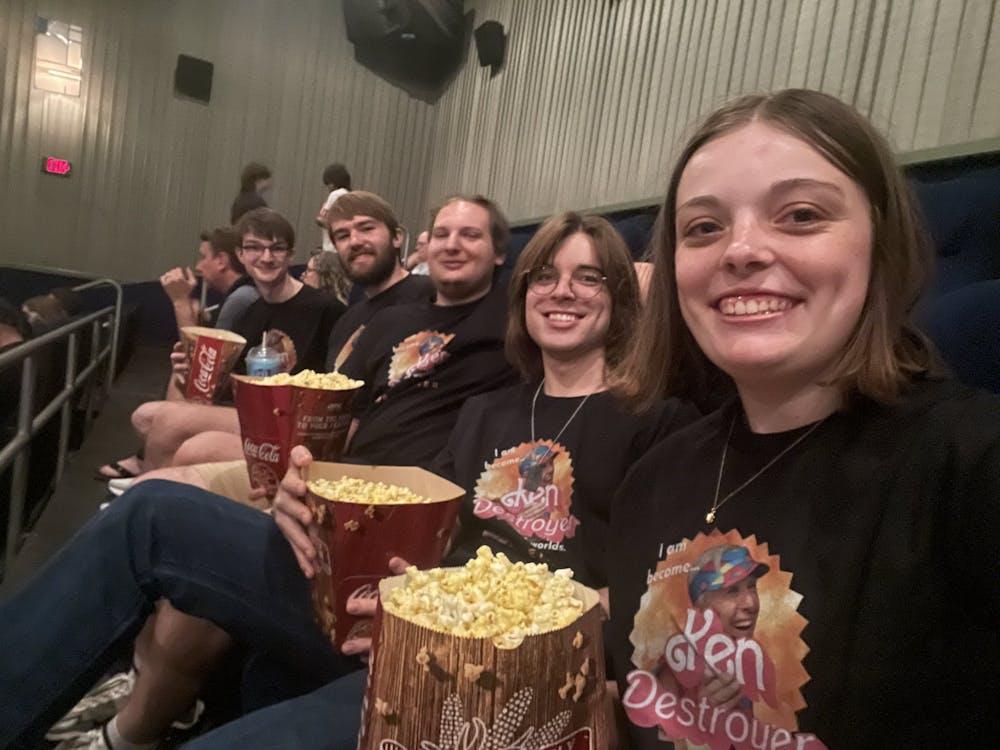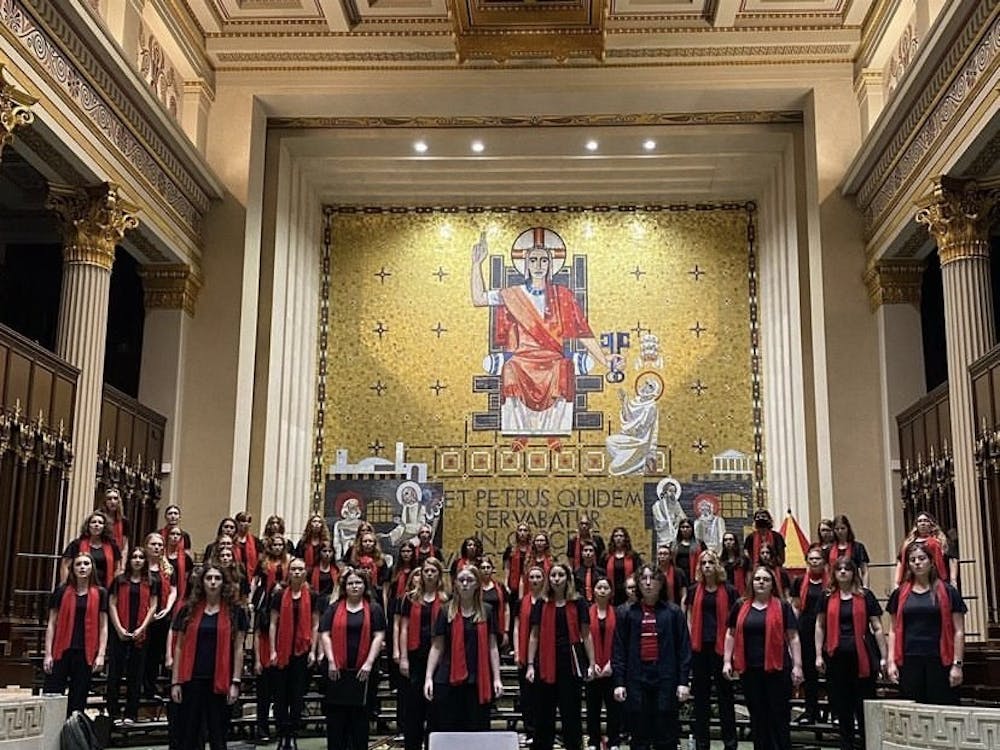Hours after the sun has sunk below the horizon, the Center for Performing Arts is alive with the sound of music.
Despite the fact that it's 8:30 p.m. and classes have long since ended, members of the Treblemakers, one of Miami University's on-campus a capella groups, are gathered for a late-night practice.
"We're currently trying to prepare for the [International Championship of Collegiate A Cappella]," said Emma Harris, the group's president. "We start really early in the year."
It's the group's first year participating, and along with preparing for the competition, the Treblemakers are also practicing for the series of concerts they put on each year.
Across Miami's campus, the various a capella groups -- the Treblemakers, Misfitz, Soul2Soul, Open Fifth and Mergers -- all practice rigorously and regularly. But during the past three years, their priorities have shifted.
The Treblemakers are focusing on competition this year because they find themselves unable to record an album, something they haven't been able to do since the winter of 2016.
According to Harris, most groups can't afford to record anymore. The most recent recording came earlier this year from the Misfitz in the form of an EP, but no group has been able to release an album this year.
The inability to record is partially the result of budget cuts that Miami's Associated Student Government (ASG) implemented in recent years. According to Caroline Weimer, ASG's secretary of finance, there are two different policies that are causing the recording drought.
"First, we were trying to identify areas that should not be funded," Weimer said. "Even though our funds come from students, they're technically from the state. Because of this, anything that we give out cannot be a gift to one's individual benefit. At the time, [ASG] determined that physical CDs fell under this category."
The second blow to album funding came last year in the form of the Red Brick Rewards program. Under this program, student organizations are divided into four tiers, with lower tier organizations offered less money and higher tiered organizations receiving the greatest amount.
"We kept getting more and more [funding] requests without any system for accountability in place," Weimer said. "Before we implemented Red Brick Rewards, budget cutbacks started at 15 percent and eventually reached 50 percent. The new program for the past two funding hearings has gotten us to zero percent cutbacks."
Weimer believes that both the cutbacks in the years before Red Brick Rewards, as well as the decision to stop funding physical CDs, could be the cause of the difficulties that Miami's a cappella groups are facing.
Enjoy what you're reading?
Signup for our newsletter
However, some groups have found their own ways to fund their recordings. The Misfitz were able to release their EP by relying on their own funding.
"We wanted everyone in our group to be able to experience what recording is like," said Brooke Vespoli, the group's music director. "Thankfully, we had money saved up from past years and were able to use that."
According to Vespoli, because the Misfitz have been raising funds for several years through fundraisers and outreach to donors, they're still able to pursue recording despite the budget cutbacks.
"We've actually grown from it a little," Vespoli said. "For the future, we're trying to be more creative. We've got different events planned. It's an opportunity to make it on our own."
Despite disappointment over the cutbacks, the sentiment of self-sufficiency seems to be echoed by other groups.
Elaine Gossard, the treasurer for the Treblemakers, seemed optimistic about the group's future.
"This really changed the way our group functioned," Gossard said. "It opened a door for us to focus on competition, which is something we've never done before."
Gossard voiced her thoughts on the future interactions between ASG and a cappella groups.
"[The budgets] are getting better," Gossard said. "We didn't face any budget cuts during this last cycle, and I'm hopeful that in the future they might even consider releasing more money our way. But if not, we'll definitely be able to make it on our own."
headledd@miamioh.edu



